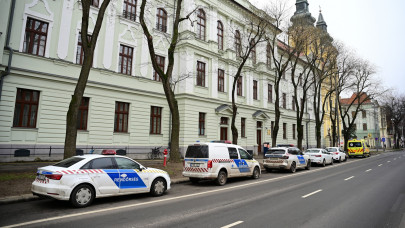Agriculture
Preparedness concerning phytosanitary measures to protect against plant pests
Ministers held an exchange of views on the EU's preparedness concerning phytosanitary measures to protect against plant pests that threaten agriculture. Ministers underlined the importance of raising awareness around plant health and the need to be able to identify dangerous pests early and eradicate them as effectively as possible.
Several ministers mentioned that digital capabilities (e.g. development of digital databases) and innovation can play a key role in addressing current and future challenges related to plant health and pests. Ministers also highlighted ways to strengthen Europe's preparedness against pests e.g. by developing contingency plans and implementing strict border-control checks.
Use of biological control agents against pests
Ministers held a policy debate on the use of biological control agents - BCAs (macro-organisms) against plant pests. There was consensus among ministers that BCAs represent a viable alternative to chemical pesticides and can contribute towards achieving certain goals of the Green Deal and the farm to fork strategy.
There was also broad support for the presidency's initiative to put forward a proposal for a Council decision asking the Commission to conduct a study on the situation in the Union and the options regarding the import, evaluation, production and marketing of biological control agents.
Protecting plants means protecting our biodiversity, crops, food production, and ultimately, lives. Together, we can build on existing initiatives and take our preparedness to the next level.
Maria do Céu Antunes, Portugal's Minister of Agriculture
CAP reform package
The presidency provided ministers with an update on the ongoing inter-institutional negotiations on the three regulations constituting the common agricultural policy (CAP) reform package (for the period 2023-2027). The presidency took note of the different views expressed by ministers on several aspects of the reform package. The presidency, with renewed political guidance from the ministers, will now aim at advancing further the inter-institutional negotiations, notably in a ‘super trilogue' on Friday 26 March 2021.
The ministerial discussions on the three regulations touched upon topics like:
- strategic plans
- new delivery model
- targeting of payments
- market management and exceptional measures
Strategic plans
Ministers exchanged views on the preparation of the CAP strategic plans. Member states are currently designing their national strategic plans, also based on the Commission's non-legally binding and country-specific recommendations.
Ministers thanked the Commission for providing the country-specific recommendations. Many ministers explained that these recommendations are a good indication and starting point in designing the strategic plans; still they highlighted that these plans would be primarily based on national priorities, specificities and SWOT analysis.
Delegations expressed divergent views on to what extent to integrate the Green Deal and farm to fork strategies' objectives in the CAP strategic plans; some ministers asked for an impact assessment from the European Commission on linking these strategies with the CAP.
New delivery model
Ministers emphatically reiterated their preference for a new delivery model (as envisaged in the strategic plans regulation and horizontal regulation) that provides enough flexibility to member states on how to design their funding interventions while guaranteeing a simplified process. To ensure simplification and cut on red-tape, many ministers stood against a proposal for a two-layer system which introduces both compliance and performance-based obligations.
Targeting of payments
The presidency outlined the compromise suggestions on a number of open issues mainly around the obligatory character (or not) on provisions including the definitions of ‘active farmer'and ‘new farmer', the reduction of payments (capping), payments for small farmers, redistributive payments. While views on the different provisions varied, several ministers highlighted the need for flexibility on different measures (opting mostly for voluntary provisions).
Market management and exceptional measures
The presidency explained that the positions of the Council and the European Parliament are relatively aligned on issues relating to wine and geographical indicators but remain apart when it comes to market management and crisis measures. Ministers called on the presidency to stay close to the principles agreed and enshrined in the Council's general approach (adopted in October 2020) and respect the EU's WTO commitments during the ongoing inter-institutional negotiations. They also showed a willingness to take a step towards the Parliament on certain issues.
Other business
EU Forest Strategy post-2020
The Austrian delegation, with the support of 11 member states, expressed their concerns about the way various initiatives under the EU Green Deal address forest-related aspects, potentially predetermining the scope of the upcoming EU forest strategy post-2020. The majority of ministers stressed the need to promote the sustainable management of forests and their multifunctional role in the EU forest strategy. They also called on the Commission to acknowledge the forests' contribution to biodiversity and climate change mitigation in the upcoming EU post-2020 forest strategy.
Proposals to make CAP implementation simpler
The French delegation, on behalf of 14 member states, presented a non-paper on limiting the administrative burden in the new CAP with specific proposals on the new delivery model, the content of the CAP strategic plans, delegated acts and more.
COVID-19 crisis and the wine sector
The Spanish delegation, together with 13 member states, informed ministers on the need for additional funds to support the wine sector, which has been affected by the COVID-19 crisis and by US tariffs.
Full document available via the link below.







